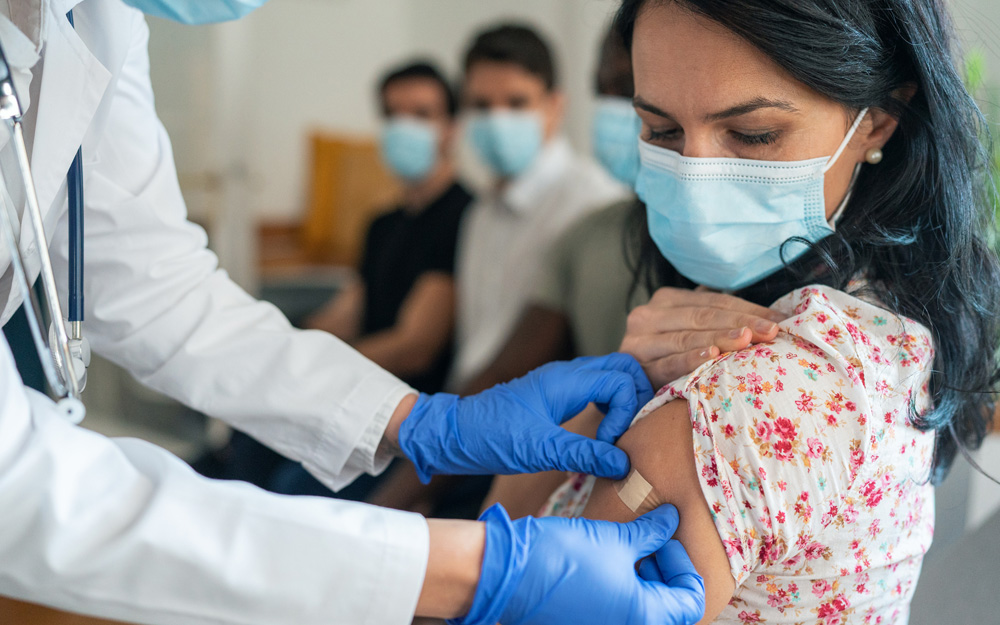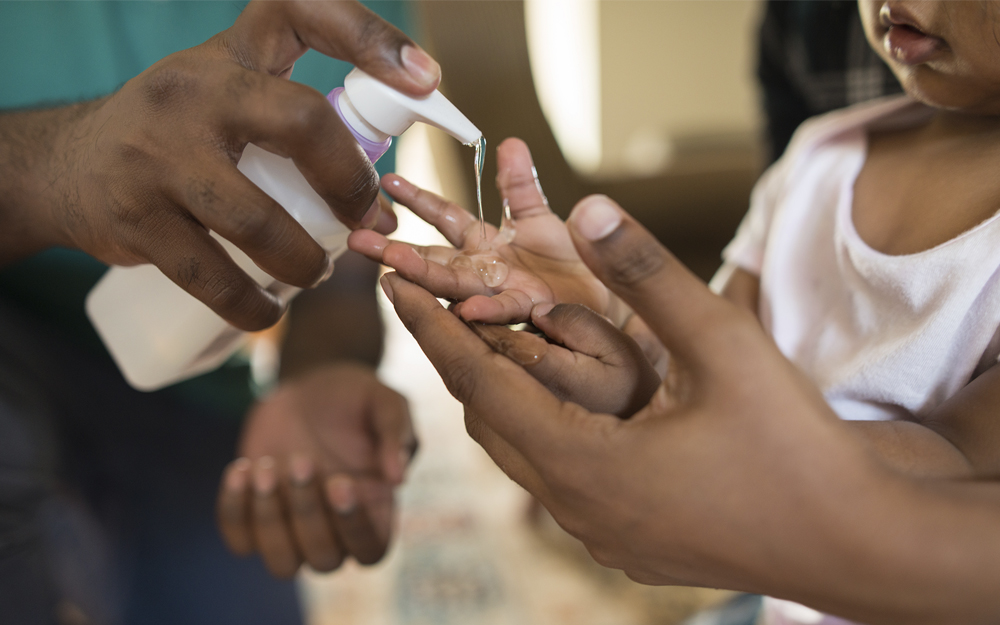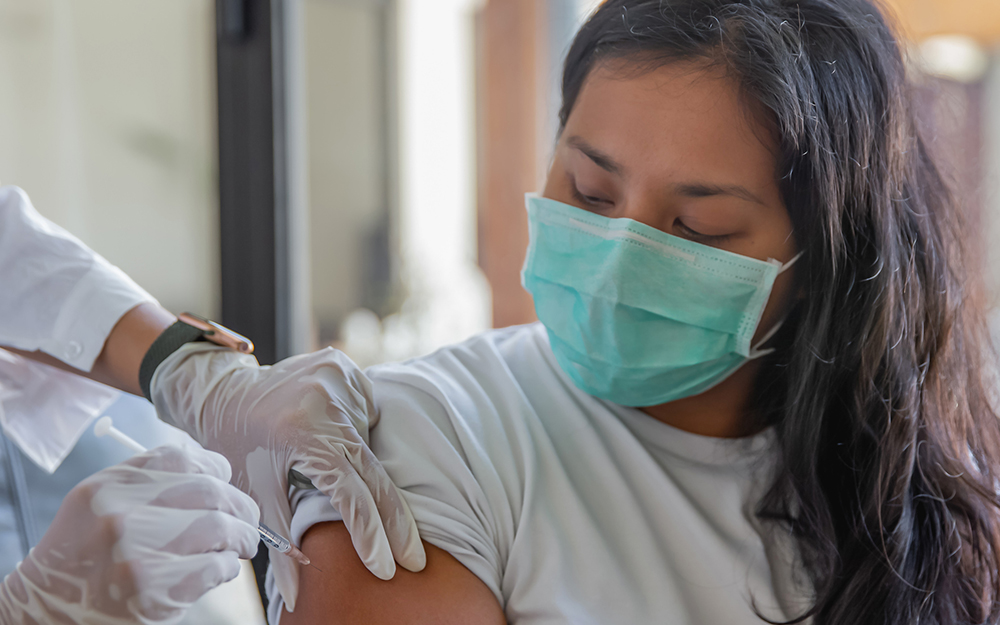Medical providers featured in this article
In Brief
{{cta-block}}
You’re dancing with someone new at a Pride concert and one thing leads to another. In the morning light, you regret not using protection. Whichever way you have sex, many adults know the anxiety that follows a risky intimate encounter. Sexual health experts want you to know that a recent proliferation of preventive options has made safer sex possible, even after the event. The latest is a sky-blue pill that may already be sitting in your medicine cabinet.
The Centers for Disease Control and Prevention proposed guidelines for the first time in October 2023 recommending the use of the common antibiotic doxycycline to prevent bacterial sexually transmitted infections. Also supported by California public health officials, post-exposure doxycycline targets syphilis, chlamydia and gonorrhea, the three most widespread STIs that together affected more than 2.5 million Americans in 2022. The approach is gaining ground, inspiring hope that it could make a dent in soaring infection rates across the U.S.
“It’s concerning that we’re missing opportunities to potentially prevent this surge from getting out of control,” said Cedars-Sinai infectious disease specialist Christopher Foltz, MD. “We have to fight back, and doxy-PEP is another tool in the arsenal.”
{{providers}}
“Doxy on Demand”
Also known as “doxy on demand,” the regimen includes one dose of 200 milligrams of doxycycline—optimally within 24 hours, but still used up to 72 hours—after risky anal, oral or vaginal sex.
Thomas Vincent, PrEP RN coordinator with Cedars-Sinai Internal Medicine and the LGBTQ+ Center, noted that the exception is patients having several days of these encounters in a row (e.g., at a festival or on vacation). They should take the maximum 200 milligrams every 24 hours until the exposure ends.
While doxy-PEP takes aim at syphilis, chlamydia and gonorrhea, other medicines are available to prevent HIV infection. PrEP (pre-exposure prophylaxis) medications are effective precautionary regimens taken daily. For those who are not on PrEP, PEP (post-exposure prophylaxis) drugs can protect against HIV after unprotected sex. This medication must be started within 72 hours of the potential exposure and taken daily for 28 days.
Experts advocate doxy-PEP particularly among men who have sex with men and transgender women, who are at higher risk of these infections, and have tested positive for one or more infections in the prior year. It likely would be a fit for people who have multiple sex partners or know they don’t like to wear condoms, as well as people who are HIV-positive and vulnerable to secondary infections.
Doxy-PEP is not for everyone: Pregnant women should avoid doxycycline, due to its interference with fetal bone and tissue growth, and researchers haven’t yet confirmed whether it works in cisgender women, transgender men or anyone assigned female at birth.
Still, if you have had an STI or risky sex and are interested, bring it up with your primary care doctor so they can help you decide.
“There’s probably a much larger population that could benefit that either doesn’t even know about this or doesn’t know the right way to talk to their physician about it,” Foltz said.
“We all want to be safe. We all want to have a great, healthy sex life, and especially in the queer community, we don’t want to be shamed for the sex we’re having."
Risk Reduction
Studies show doxy-PEP can reduce the risk of syphilis and chlamydia by more than 80% among people who are not immune-suppressed, and gonorrhea by roughly 55%. The regimen offers slightly less protection against gonorrhea because about 20% of current strains are antibiotic-resistant.
“If used appropriately and correctly, I think we will hopefully see STIs start to dramatically decline over the next few years,” Foltz said. Some experts are concerned about the new off-label use of doxycycline perpetuating antibiotic resistance, as well as possible long-term effects on the gut microbiome (eliminating healthy bugs, in addition to STIs). More immediately, patients could have mild gastrointestinal upset.
Foltz is more worried that people might believe doxy-PEP treats STIs—it does not.
“People are spreading infections not knowing they have them,” he said. “A lot of doctors don’t regularly screen to see if people are at risk.”
Standing up to the STI Epidemic
Syphilis and chlamydia often don’t show symptoms until later, more dangerous stages. These rare, avoidable cases of syphilis-related neurological problems, blindness and congenital infection—and pelvic inflammatory disease and even sterilization in women who have chlamydia—have made a comeback.
Experts explained the COVID-19 pandemic threw an even deeper wedge into a worsening crisis, making it harder for people to get medical appointments.
Still others feel uncomfortable or afraid bringing up sexual health with their doctor, because of personal and generational histories of discrimination and bias.
LGBTQIA+ patients are too-often dismissed or stigmatized, Vincent said.
“We all want to be safe,” he stressed. “We all want to have a great, healthy sex life, and especially in the queer community, we don’t want to be shamed for the sex we’re having.”
Vincent believes doxy-PEP could help relieve those concerns among hesitant patients from historically marginalized communities. Fewer STI chances lessen the need for continued awkward or potentially distressing conversations at the doctor’s office.
It’s just one part of a comprehensive sexual health strategy, though, experts stressed, alongside condoms or barriers, the growing range of effective HIV prevention and antiretroviral medications, and sex education. Vaccines and regular STI screening can also hamper progressive infections, such as human papillomavirus. People who have multiple or anonymous sexual partners should test every three months, even if you take pre- and post-exposure medications.
“If we reduce the overall amount of syphilis in the community, we can prevent the spread to other at-risk populations,” Foltz said.







